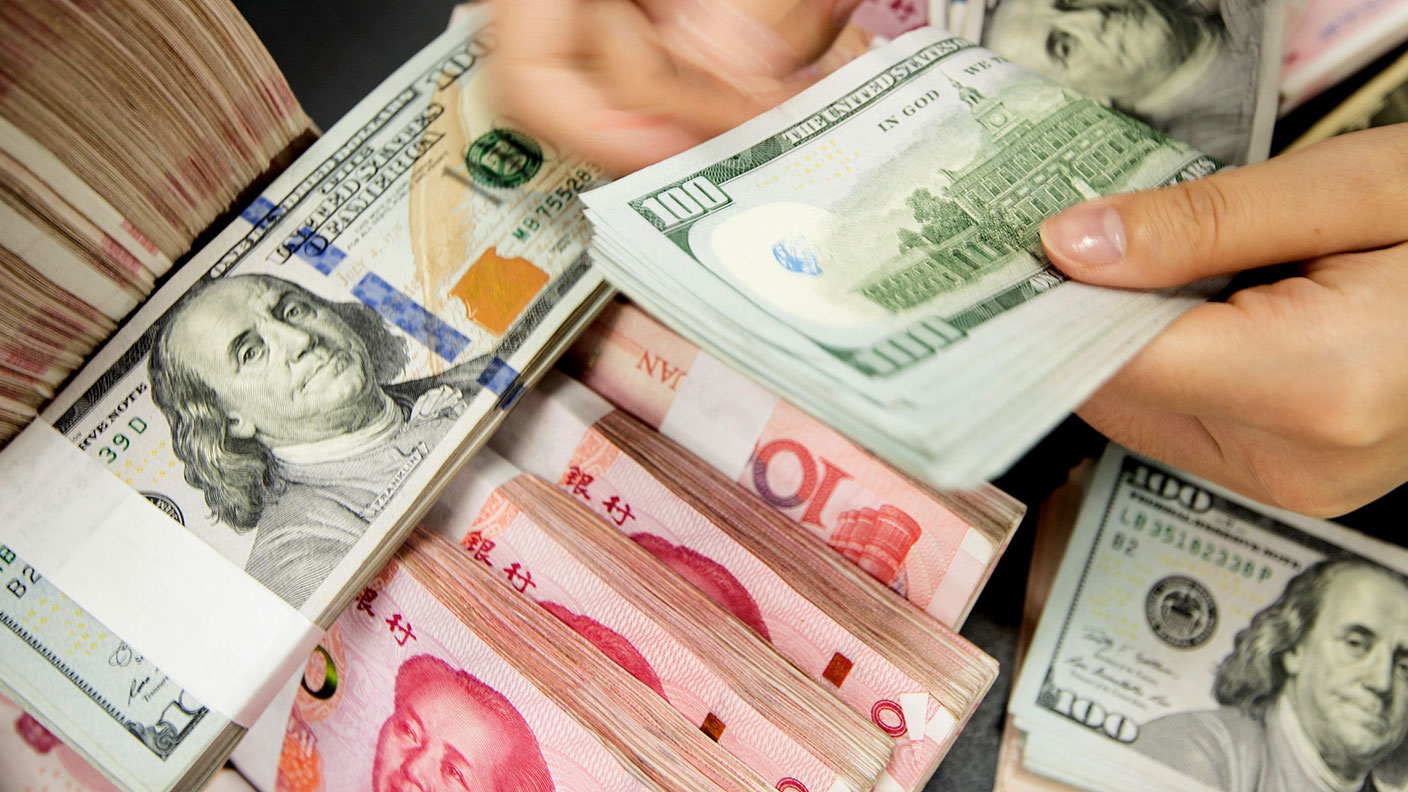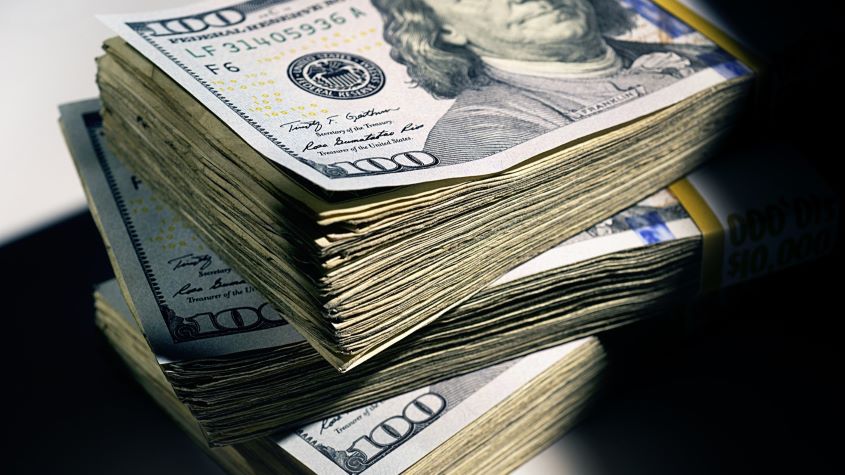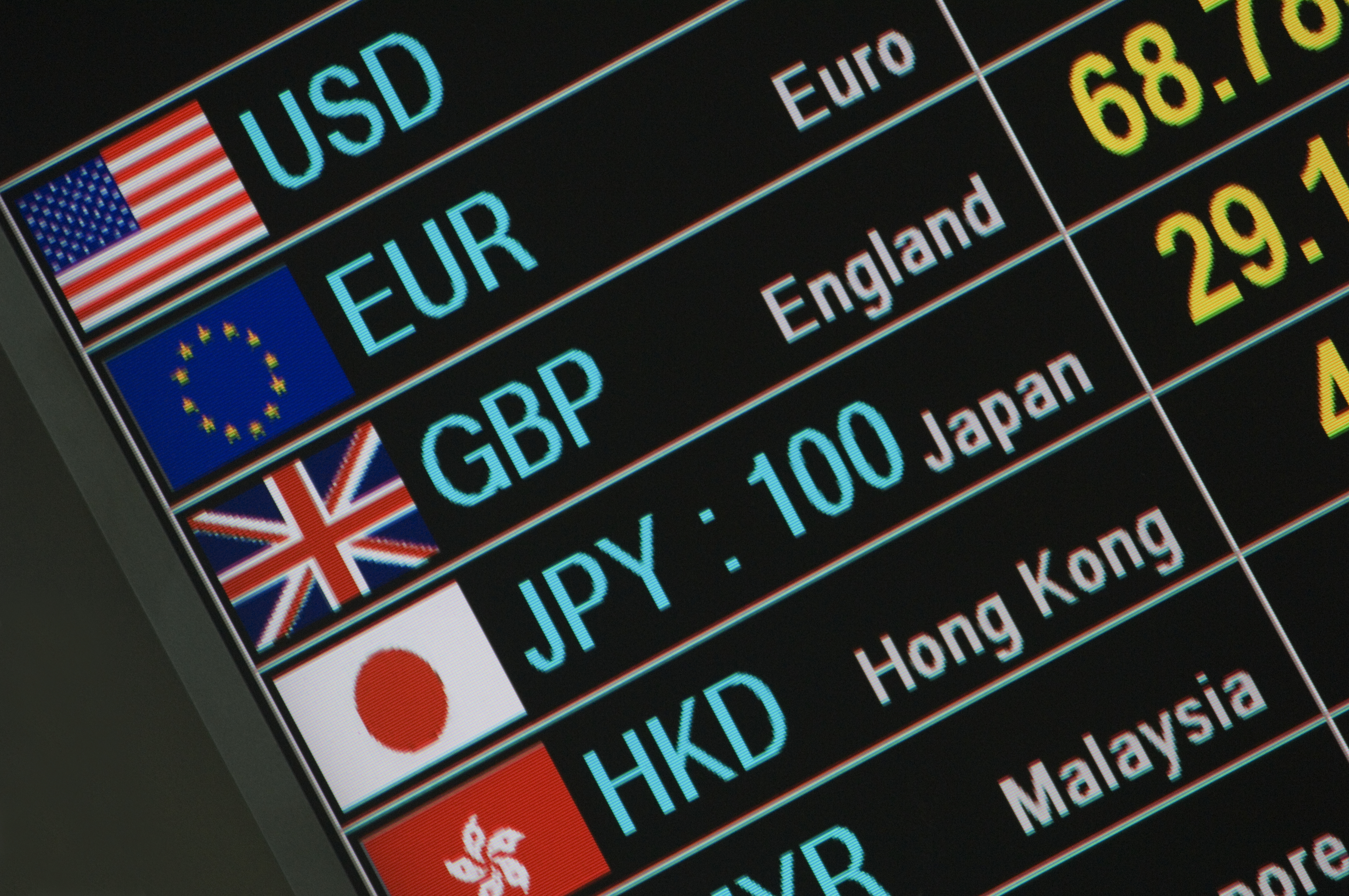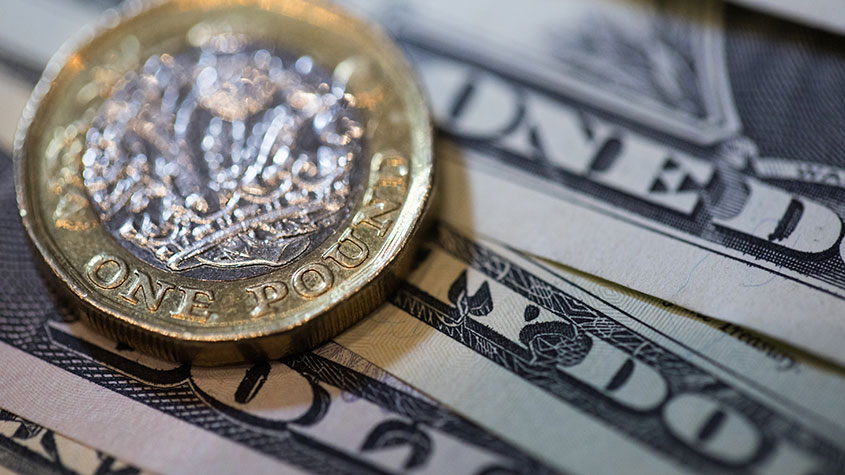Here’s why you should pay attention to the Chinese yuan
The Chinese yuan is at its strongest level for over two years – and a strong yuan means higher inflation. That’s something you need to prepare for, says John Stepek.


Get the latest financial news, insights and expert analysis from our award-winning MoneyWeek team, to help you understand what really matters when it comes to your finances.
You are now subscribed
Your newsletter sign-up was successful
Want to add more newsletters?

Twice daily
MoneyWeek
Get the latest financial news, insights and expert analysis from our award-winning MoneyWeek team, to help you understand what really matters when it comes to your finances.

Four times a week
Look After My Bills
Sign up to our free money-saving newsletter, filled with the latest news and expert advice to help you find the best tips and deals for managing your bills. Start saving today!
About a year and a half ago, investors were closely watching the Chinese yuan. They were worried that China might let its currency weaken drastically, rattling markets and sparking disinflation across the globe.
Now, the yuan is at its strongest level against the US dollar since mid-2018. Fears of devaluation have evaporated. What’s changed? And why should you care?
The Chinese yuan is at its strongest level in two-and-a-half years
The Chinese currency – the yuan or renminbi – has been steadily strengthening against the US dollar since about May of last year. At the start of 2020, one US dollar would fetch you nearly seven Chinese yuan. Yesterday, the same dollar would get you less than ¥6.5. That’s the strongest the Chinese currency has been since June 2018. This is significant. Not the level particularly, but the fact that the yuan is getting stronger and stronger.
MoneyWeek
Subscribe to MoneyWeek today and get your first six magazine issues absolutely FREE

Sign up to Money Morning
Don't miss the latest investment and personal finances news, market analysis, plus money-saving tips with our free twice-daily newsletter
Don't miss the latest investment and personal finances news, market analysis, plus money-saving tips with our free twice-daily newsletter
As recently as the middle of 2019, one big “macro” fear (and yes, how laughably naive that fear seems today) was that the yuan would just keep getting weaker against the US currency. Indeed, the level of ¥7 to the US dollar was regarded as a “line in the sand”, monitored with much trepidation by investors. Why?
China is trying to diversify, but it is still a big exporter. One of the biggest disinflationary factors in the world over the past two to three decades has been the presence of China as a major supplier of both labour and goods to the global economy.
Like all economies, China’s authorities face a bit of a juggling act. But that juggling act is made a lot more complicated by the fact that China is an authoritarian state with a lot of central planning. Trade-offs are hard to make when your authority relies partly on giving the impression that everything, everywhere, at all times, is going to plan. So when Chinese economic growth was under pressure amid trade disputes, one view was that the country might allow the yuan to weaken, or even push through a one-off devaluation, hoping the weaker currency would offset any trade barriers and help boost growth.
Any major devaluation of the yuan by the Chinese authorities would have sent a wave of deflation washing across the globe. Given that every central bank in the world is trying to spark inflation, that wouldn't have been welcomed by the authorities anywhere. Also, America probably wouldn’t have been overjoyed, in the midst of a trade war, to see its rival explicitly aiming to get an advantage by weakening its currency.
Anyway, the ¥7 mark drew a lot of attention because the yuan hadn’t been that weak since before the 2008 financial crisis. As it turns out, the “line in the sand” was in fact crossed. And eventually the yuan hit its weakest point in September 2019 at a point where a US dollar fetched almost ¥7.2. It rallied from there, but then the extent of Covid-19 became clear, and it started to weaken again from mid-January last year.
Then of course, Covid-19 went global, and while the yuan continued to weaken until May, by that point China was starting to recover while things were going pear-shaped everywhere else. And since then the yuan has been strengthening very consistently. So what's going on and what does it mean for your money?
What’s pushing the yuan higher?
There are few factors driving the stronger yuan. One is that Chinese assets offer much higher interest rates than US and European ones. That means China is attracting capital which will drive up its currency.
Investors have also noticed that the Chinese authorities – who still closely monitor and manage the currency – don't seem to be too concerned about its current strength. So they're more willing to bet on the currency strengthening still further. This is at least partly driven by China’s desire to deepen the country’s capital markets, which ultimately relies on being an appealing destination for capital, foreign or otherwise.
The other factor is that it’s not just about the yuan getting stronger – the dollar is also getting weaker. That’s partly because of increased risk appetite. As we've pointed out here countless times, all else being equal, a weaker dollar is good news for risk assets in general. In effect, it means that liquidity is plentiful and everyone can get hold of all the dollars they need easily (the US dollar is the global reserve currency, so everyone needs it).
The question is: what does it mean for your money? You can decide whether investing in China is something you want to do. I have my qualms – I think China is less risky than Russia in terms of respect for property rights, but that isn’t saying a great deal. And you only have to look at the slapdown Jack Ma took last year, with the scrapping of the Ant Financial IPO, to understand that when push comes to shove, the Communist party is in charge (yes, America is tiptoeing around Jeff Bezos in a similar manner right now, but both the balance of power and the institutional protections make it an entirely different matter).
That said, some smart people reckon that Chinese sovereign bonds represent a good addition to a portfolio. And there’s no doubt that China has some excellent listed companies. And at the end of the day, if China does harbour ambitions of supplanting the US as reserve currency in the future, then it’s going to struggle to do that without modernising its financial system in a way that shifts more power away from the state.
However, as far as broader markets go, the biggest point to understand about a stronger yuan is probably this: if a weaker yuan is deflationary, a stronger yuan is inflationary. A stronger yuan pushes up prices of Chinese exports, but it also enables China to buy more commodities per yuan, for example, which in turn may boost demand for raw materials even further than it already has. If China is exporting inflation, that’ll start to show up in consumer price indices before too long. That would leave the Federal Reserve in the US with a potential quandary. The Fed has said it will tolerate inflation higher than target. But how much higher?
The pandemic is still obscuring a great deal of this concern. But it’s going to become an issue, and I think one surprise for 2021 is that it will become an issue much more quickly than anyone expects. Betting on inflation for this year is not a contrarian bet, but the “reflation” trade in vogue, is fundamentally a positive, “Goldilocks” scenario. The idea is that we get higher but manageable inflation, in just the right amounts (hence the “Goldilocks” term).
The tricky thing about inflation is that it has a nasty habit of being self-feeding once it’s out there. It’ll be interesting to see what level starts to get people rattled. On that note, you should listen to our recent podcast with Russell Napier if you haven’t already.
Anyway – we’ll have more on this in the upcoming issues of MoneyWeek magazine. Get your first six issues free here.
Get the latest financial news, insights and expert analysis from our award-winning MoneyWeek team, to help you understand what really matters when it comes to your finances.

-
 8 ways the ‘sandwich generation’ can protect wealth
8 ways the ‘sandwich generation’ can protect wealthPeople squeezed between caring for ageing parents and adult children or younger grandchildren – known as the ‘sandwich generation’ – are at risk of neglecting their own financial planning. Here’s how to protect yourself and your loved ones’ wealth.
-
 What are Avios-only flights and who is eligible?
What are Avios-only flights and who is eligible?Avios-only flights have proved incredibly popular since launching in 2023. We explain what they are, how they work and who qualifies
-
 Why you should keep an eye on the US dollar, the most important price in the world
Why you should keep an eye on the US dollar, the most important price in the worldAdvice The US dollar is the most important asset in the world, dictating the prices of vital commodities. Where it goes next will determine the outlook for the global economy says Dominic Frisby.
-
 What is FX trading?
What is FX trading?What is FX trading and can you make money from it? We explain how foreign exchange trading works and the risks
-
 The Burberry share price looks like a good bet
The Burberry share price looks like a good betTips The Burberry share price could be on the verge of a major upswing as the firm’s profits return to growth.
-
 Sterling accelerates its recovery after chancellor’s U-turn on taxes
Sterling accelerates its recovery after chancellor’s U-turn on taxesNews The pound has recovered after Kwasi Kwarteng U-turned on abolishing the top rate of income tax. Saloni Sardana explains what's going on..
-
 Why you should short this satellite broadband company
Why you should short this satellite broadband companyTips With an ill-considered business plan, satellite broadband company AST SpaceMobile is doomed to failure, says Matthew Partridge. Here's how to short the stock.
-
 It’s time to sell this stock
It’s time to sell this stockTips Digital Realty’s data-storage business model is moribund, consumed by the rise of cloud computing. Here's how you could short the shares, says Matthew Partridge.
-
 Will Liz Truss as PM mark a turning point for the pound?
Will Liz Truss as PM mark a turning point for the pound?Analysis The pound is at its lowest since 1985. But a new government often markets a turning point, says Dominic Frisby. Here, he looks at where sterling might go from here.
-
 Are we heading for a sterling crisis?
Are we heading for a sterling crisis?News The pound sliding against the dollar and the euro is symbolic of the UK's economic weakness and a sign that overseas investors losing confidence in the country.